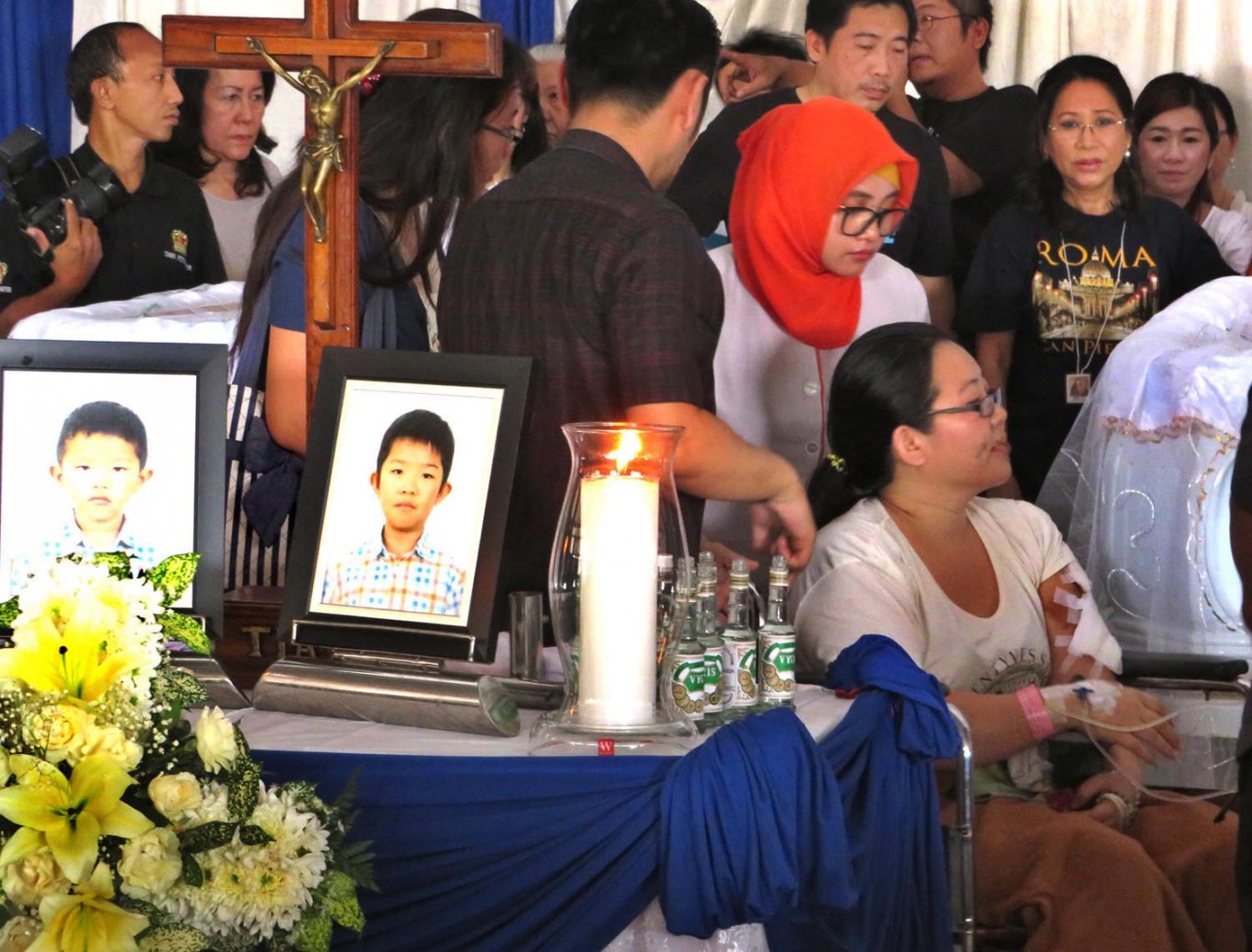Popular Reads
Top Results
Can't find what you're looking for?
View all search resultsPopular Reads
Top Results
Can't find what you're looking for?
View all search resultsCommentary: Rise women leaders of faith, to save 'reformasi'
Leading interfaith women have the authority to voice what is religious, and what is religious misunderstanding and abuse.
Change text size
Gift Premium Articles
to Anyone
T
wenty years after reformasi, we have child suicide bombers, indoctrinated by fathers and mothers pursuing instant heavenly rewards for killing kafir (infidels). Under the New Order, it was the regime’s henchmen who were largely responsible for the most heinous crimes. Now it is the friendly neighbors and their cute kids.
Yet our worst enemy is not violent jihad involving minors. More problematic is the attitude of many who, despite being shocked by such abuse of children, share the intolerant attitudes justifying such violence.
Few seem to see the problem with free and fiery pronouncements against kafir, however defined, because they are based on the Quran, however debatable the interpretation; and because most people don’t react violently. A wonderful backdrop for troublemakers ahead of next year’s presidential election.
Today, the most devastating excess of rampant abuse of religion must be the deaths of the seven children and teenagers — including four from one family — who were blown up in their parents’ suicide missions in East Java’s capital days before Ramadhan; and all the victims of their attacks on three churches, including
children.
Back in 1998, around May 13-15, the ugliest crime of sectarian politics, which marked the reform movement, was the rape and murder of ethnic Chinese women in riots in Jakarta and a number of other cities, as hundreds, largely the urban poor, died in blazing buildings.
Women activists from secular and faith-based organizations led antiviolence demonstrations. A group of women managed to convince then newly elected president BJ Habibie to set up a fact-finding team, which ended denials of the rapes and led to the establishment of the National Commission of Violence Against Women.
The criminals and masterminds of May ’98 remain free, and Chinese-Indonesians continue to be on guard against any sign of unrest. The church bombings may have confirmed their worst fears, eerily occurring also on May 13. Meanwhile, the Commission has continued to pinpoint sources of violence against women and other minorities — including sectarian politics, which intensify during every election period, and abuse of religion.
Today, it is women of various faiths who can counter messages of hate void of reason, more than the students or the human rights movement, which detractors rail as “liberal”. Leading interfaith women have the authority to voice what is religious, and what is religious misunderstanding and abuse. We need their collective voices and action to help society and timid political leaders wary of losing the Islamic vote, to reject attempts to divide us in the name of God — just like tyrants of the majority elsewhere in Asia.
Following the Surabaya church bombings, the Indonesian Communion of Churches (PGI) urged religious leaders to “seriously prevent teachings of terrorism” in their propagation of beliefs. Mayor Tri Rismaharini appealed to all parties to do everything to stop terrorism. Amid her shock and tears, Ibu Risma immediately started the unprecedented task of facilitating the healing and rehabilitating of orphans of extremist parents, and of other traumatized survivors.
We have had many international gatherings of largely male Islamic and interfaith leaders. Despite their strong statements on peace and calm, we have had little of either.
The potential of women religious leaders to save Indonesia from further sliding into power politics abusing religion emerged at last year’s seminal Women’s Ulema Congress in Cirebon, West Java. The preachers and scholars nailed the main sources of misery among women that are silenced by twisted Islamic teachings, mainly on child marriage and sexual violence — and issued a fatwa against both issues.
A stronger and more creative pro-democracy movement needs the youth, artists and strategically placed female leaders of diverse faiths. They constantly engage with their cultural grass roots — such as the female leaders of pesantren (Islamic boarding schools), known as nyai, who tactfully encourage women to come to gatherings, and share insights that may clash with powerful figures; the female pendeta (priests) and mubalighah (female Islamic preachers) who hold their audiences spellbound.
With many activists and scholars dabbling in politics, business and government and getting criticized for failing to bring about significant change, saving reformasi needs all hands on deck.
Samuel Moyn, a professor of law and history at Yale University, wrote recently in the New York Times that the global human rights movement had failed to sufficiently promote economic and social rights, contributing to today’s massive votes for radical populism and nationalism.
Indeed, weekly protests by survivors of persecution, former political prisoners and parents of missing and murdered loved ones largely fall on deaf ears; there are too many cases of injustice, along with inequality and land conflicts. Male and female recruits of terrorism have been identified as individuals frustrated with the perceived failure of secular governments to address vice and poverty, among other things.
Reformasi improved the nation in many ways. Yet the scene of children killed while killing other kids and their families was perhaps the most devastating consequence of our failure to stand up to the bullies preaching “us vs them”. Seriously addressing inequality, while strengthening communities with the learned and devout women of faith, would help ensure a vibrant Indonesia, with no place for the pied pipers of murderous hate.











